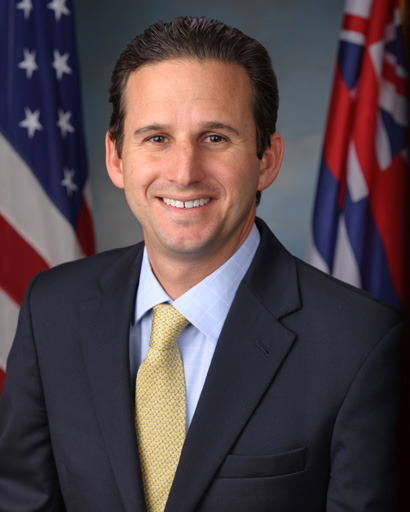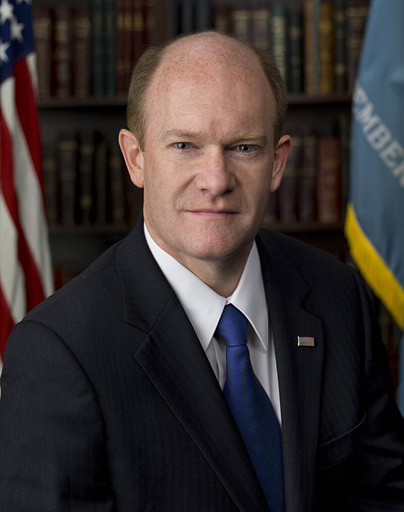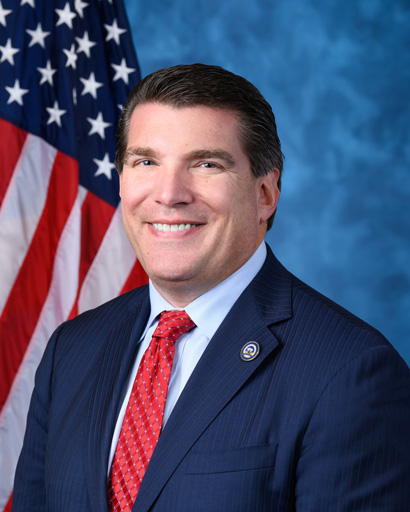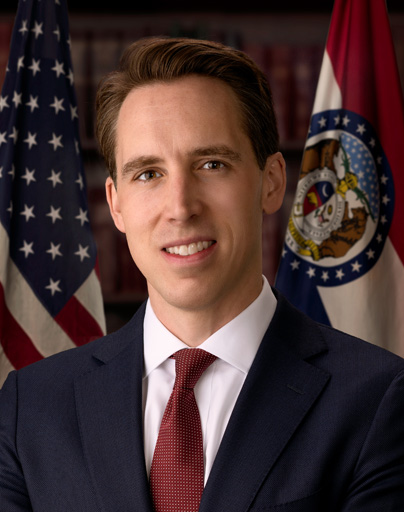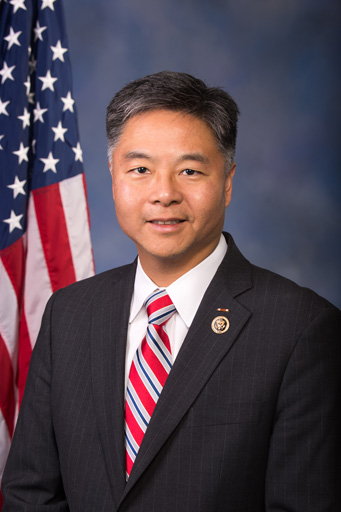The Urgent Case for the AI Whistleblower Protections: Congress Must Pass the AI Whistleblower Protection Act
Congress must pass the AI Whistleblower Protection Act, a best-practices whistleblower bill that specifically addresses AI employees.
Without information from whistleblowers, the U.S. government’s ability to police and regulate this newly developing technology is curtailed, risking an increase in the technology’s risks to public health, safety, national security, and other concerns. Insiders must be able to disclose potential violations safely, freely, and appropriately to law enforcement and regulatory authorities.
Like powerful developing sectors preceding it, insiders in the Artificial Intelligence industry do not have explicit access to safeguards for reporting until legislation is passed, as the misconduct they seek to report may not be considered illegal under existing law. Currently, the regulation of AI is far behind technological advancements.
Historical Precedent
Government agency whistleblower programs — including those at the Securities and Exchange Commission (SEC), Commodity Futures Trading Commission (CFTC), Internal Revenue Service (IRS), and Department of Justice — depend heavily on information provided by whistleblowers as a roadmap for discovery, as these agencies would never have discovered the full scope of misconduct through their own investigations.
Analysis of the DOJ’s 2023 fiscal year fraud statistics reveals that of the civil funds the U.S. recovered in cases from 1987 to 2023, whistleblower tips accounted for around 70%, totaling nearly $53 billion.
Congress has enacted whistleblower protection laws in past decades that covered employees across relevant industries:
- Nuclear energy: 1978 Energy Reorganization Act;
- Federal government employees: 1989 Whistleblower Protection Act;
- Airlines: AIR21 in 2000;
- Wall Street: Dodd-Frank in 2010.
This legislation helps ensure that workers in specified fields can speak out on issues that pose a risk to the public.
Modern anti-fraud and public safety laws uniformly include whistleblower protections similar to those outlined in the AI Whistleblower Protection Act. These include the laws such as the aforementioned Taxpayer First Act, as well as the Food Safety Modernization Act, Sarbanes-Oxley Act, the Anti-Money Laundering Act, and the National Transportation Security Act.
What Sparked the Bill?
Former OpenAI employee, Daniel Kokotajlo at National Whistleblower Day 2025 talking about the need for the AIWPA.
What is the AI Whistleblower Protection Act?
Senate Judiciary Chair Chuck Grassley (R-IA) introduced the bipartisan AI Whistleblower Protection Act (AIWPA) in May 2025 to protect individuals who disclose information regarding potential artificial intelligence security vulnerabilities or violations.
This bill comes at a critical moment, with a wave of deregulation potentially sweeping the state and federal levels; therefore, whistleblower protections may become even more crucial in holding the AI industry accountable.
Covered disclosures outlined in the bill are “AI security vulnerability” and “AI violation.”
- The term “AI security vulnerability” refers to any security breach or vulnerability that could enable the unauthorized acquisition of a company’s technology being developed by individuals or foreign entities through theft or other illicit means.
- The term “AI violation” in the bill means any breach of federal law occurring during or related to the development, deployment, or use of artificial intelligence, or any inadequate response to a concrete and specific risk that the development, deployment, or use of artificial intelligence may pose to public safety, public health, or national security.
The bill provides coverage for information brought forward regarding an AI security vulnerability or violation. It includes any conduct that the covered individual reasonably believes to constitute an AI security vulnerability or AI violation.
All whistleblower retaliation laws include this precedent, where the whistleblower is not required to prove the reported violation as long as they believe in good faith that what is occurring could result in a vulnerability or a violation of law.
The scope of individuals to whom a disclosure can be made to under the anti-retaliation protections is broad. Whistleblowers are permitted to report to most federal law enforcement or regulatory agencies, Attorneys General, and Congress.
What are the Protections Afforded by the Act?
Coverage and Anti-Retaliation Protections
The bill provides protections for individuals’ testimony in administrative and judicial proceedings, as well as for aiding in government investigations. It contains anti-retaliation protections that prohibit employers from discharging, demoting, suspending, threatening, blacklisting, or harassing any covered individuals related to their protected activity.
The bill covers individuals who make disclosures internally via existing company compliance programs or to their supervisors. The protections for those who disclose to a person with supervisory authority over them or someone with the authority to investigate, discover, or terminate the misconduct, if executed properly, would help create a stronger risk management culture within the organization, countering the current chilling effect on internal reporting.
Legal Recourse and Remedies for Whistleblowers
AI whistleblowers who experience retribution would gain the ability to submit grievances to the Labor Department and pursue remedies through federal courts, including job restoration, twice the amount of back wages owed, and compensation for damages. The legislation also explicitly states that these protections for AI whistleblowers cannot be surrendered through employment contracts or forced arbitration clauses.
Complaint Filing and Adjudication Process
The law follows the standard procedures outlined in whistleblower law, such as the Sarbanes Oxley Act, Taxpayer First, and auto safety laws, by requiring an initial complaint to be filed with the Department of Labor, which has the authority to fully adjudicate the claims and protect the whistleblower. Critically, it permits the whistleblower after 180 days to file a complaint directly in federal court, seeking complete full relief available from the courts and present their case to a jury of peers. This protects whistleblowers from the lengthy delays often experienced in administrative cases and ensures that they can present their case to members of the community, rather than just a single judge.
Statute of Limitations and Prohibition of Contractual Waivers
The statute of limitations for filing a claim is a minimum of three years. However, it can be extended based on the information that is presented. This is a progressive feature in the law that permits whistleblowers ample time to secure new employment before engaging in a public legal case against their former employer. An essential aspect of the law is its strict prohibition against contractual waivers of whistleblowers’ rights, whether they be obligations to submit complaints to mandatory arbitrations, or being forced to sign restrictive non-disclosure agreements. Employers’ use of contracts to circumvent whistleblower laws has a troublesome history, which, consistent with all modern whistleblower laws, the statute would prevent.
Damages and Overall Significance
Should a whistleblower be wrongfully terminated, the law provides a fully make-whole remedy, including back pay, benefits, reinstatement, and compensatory damages. If a whistleblower prevails, the company must pay attorneys’ fees and costs. Although the statute does not have punitive damages, it does have a double back pay provision, which serves a similar purpose. Double back pay also protects whistleblowers from having to meet the extremely heavy burden required to demonstrate punitive damages.
This law represents a significant step forward in ensuring that employers, senior managers, and appropriate government officials can receive early warnings of potential significant and harmful impacts that could result from misconduct in the development and deployment of AI. Most significantly, it serves as a necessary safeguard against the well-documented risks to the public interest that can be reported, investigated, and, if necessary, mitigated.
Is there a financial compensation program in the AIWPA?
The AIWPA does not directly offer monetary awards for those who come forward. Typically, these are only afforded by Congress when it passes overarching industry standards, which it has not yet done in the AI space. However, there are cases where AI employees can still seek protections under Dodd-Frank — such as when a publicly traded company or company registered with the SEC violates securities laws in the implementation, deployment, marketing, or solicitation its technology to investors. Congress must consider AI-specific employee protections in any regulations it passes regarding AI.
What Cosponsors are Saying
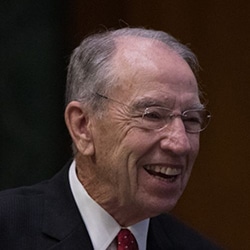
Whistleblowing is a particularly salient issue for Grassley, dating back to his work reintroducing a modernized and strengthened False Claims Act in 1986. As Grassley stated in the bill’s press release:
“Transparency brings accountability. Today, too many people working in AI feel they are unable to speak up when they see something wrong. Whistleblowers are one of the best ways to ensure Congress keeps pace as the AI industry rapidly develops. We need to act to make these protections crystal clear. I’m proud to introduce this legislation to increase accountability and protect AI whistleblowers.”
“AI is rapidly evolving in ways that have the potential to radically reshape our society and transform our world for the better and for the worse, … I have long been concerned with how much more tech companies know about the risks and harms of their products compared with regulators, independent researchers, and the public. The AI Whistleblower Protection Act is a critical tool among others that Congress must enact to ensure that we can get the best out of AI while also learning when it poses a substantial danger to public safety.”
“As AI continues to develop at breakneck speed, we need to know about the risks that come with it, … This bill protects whistleblowers from employer retaliation in the event that they report on significant dangers, security failures, or breaches of the law.”
“Protecting whistleblowers who report AI security vulnerabilities isn’t just about workplace fairness—it’s a matter of national security, … As artificial intelligence becomes more powerful and more deeply embedded in our infrastructure, we must ensure that those who identify potential threats can speak up without fear of retaliation. This bill will help safeguard the American people from emerging technological risks and protect the integrity of our AI systems.”
What Former AI Employees are Saying

“It meant a lot to me and my wife; this question of are we actually legally in the clear. Separate from the issue of whether we are going to be retaliated against, whether we are going to lose money, it mattered a lot to us legally to know if we were in good standing. I think that even passing legislation to make it clear that if you see something, you are allowed to say something would go a long way towards helping, regardless of how it all shakes out in the courts. There also should be intermediate options besides quitting your job and going public — there should be some intermediate option where you can keep your job and quietly talk to relevant regulators in the government and show them what you’re seeing. We need a middle ground that is a less escalatory way to have these conversations.”
What Responsible Tech Advocates and Experts are Saying

“The people who will help inform us when we’re approaching artificial general intelligence or superintelligence are the people inside the companies. While it’s challenging to regulate this in advance of it being technologically possible, transparency from the labs is crucial for keeping the government informed. It’s imperative that whistleblowers are able to come forward because we’re not going to get this information from governments alone or just from formal communication between the labs and governments.”

“The capabilities [of these systems] are continuing to improve very quickly – it’s one of the reasons why whistleblowers in particular are a key piece of this governance pie because they’re in the labs and seeing what’s happening on the ground. Otherwise, we don’t have good inspection mechanisms to understand what’s happening at these labs.”
What Advocacy Groups are Saying
“In a time when AI technologies are advancing faster than many institutions can keep up, it’s absolutely vital that the federal government has access to accurate, truthful information about the dangers AI poses to public health and public safety, … Senator’s Grassley’s strong and effective whistleblower protection bill will honor the brave individuals who step up to report genuine dangers and make it possible for them to do the right thing without giving up their careers. The Center for AI Policy firmly endorses this important and well-drafted bill and urges Congress to advance it without delay.”
“Sen. Grassley’s bill offers crucial protection for AI whistleblowers, … Sector-based whistleblower protections are desperately needed to allow insiders within the AI industry to best protect investors and ensure proper safety protocols are implemented. Given the rapid development and adoption of AI throughout our society, insiders working within the industry need to be properly protected when they blow the whistle.”
Latest News & Insights
Whistleblower News and Qui Tam Blog



Published on February 18, 2026


Published on February 10, 2026



